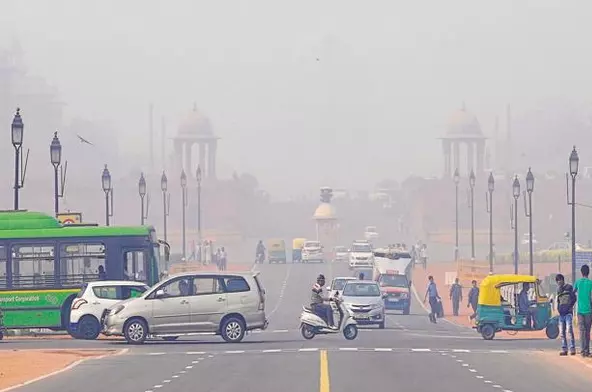Indians are highly susceptible to heart disease and we tend to have heart attacks almost a decade earlier than our Western counterparts. Our odds of having a heart attack are 50-100 per cent higher. This grim reality is mirrored in the increasingly frequent headlines about young people suffering heart attacks or suddenly losing their lives. To avoid such events and live a healthier life, knowing and addressing the risk factors of heart disease is crucial. A great way to do this is to know your numbers. Let’s take you through them.
You should exercise for a minimum of 150 minutes every week, as regularly as possible. Studies on the increasingly popular ‘step-count’ – easily measured by smartphones and watches – reveal that a daily step-count of above 2,700 has measurable benefits, which keep increasing as you work up to 8,000-10,000 steps per day. Being physically active has profound beneficial effects on the heart as it lowers blood pressure, reduces blood sugar and improves one’s cholesterol profile. These benefits emerge whether you stroll, take a brisk walk, or swim, whether you are young, old, lean, or obese.
What are you eating?
A daily fruit and vegetable intake of about 400 gm is beneficial. Include whole grains, millets, plant proteins, fish and lean meat and liquid plant oils. Limit the use of sugar and salt, avoid processed food, oil that solidifies, and sweetened beverages.
What is your waist circumference and weight?
One of the earliest red flags could be raised by your tailor! A bulging waist may be an early indicator of metabolic syndrome – a common condition in India that can leave you susceptible to heart attacks. For a healthy heart, men’s waist circumference should typically be less than 90 cm, and women’s should be under 80 cm. Apart from your waist circumference, you should also keep a close watch on your weight. Height (in centimetres) minus 100 (in kg) is a handy formula to figure out your ideal weight.
How often do you smoke?
Tobacco, whether smoked or chewed, increases the odds of a heart attack by two to three times, and more if taken in both forms. However, there is a silver lining – five years after quitting, the risk of heart disease comes back down to normal.
Are you keeping tabs on your alcohol intake?
Moderation has traditionally been considered good for the heart. However, recent studies have shown it might do more harm than good, especially for Indians. The uninitiated should avoid drinking, and those who must drink should limit their intake.
What is your blood pressure?
One in four adult Indians has high blood pressure, or hypertension, with readings above 140/90 mmHg. You should aim for an upper blood pressure of less than 120 mg and a lower blood pressure of 80 mmHg. Anyone with persistent blood pressure above 140/90 mmHg needs treatment.
There are several myths about blood pressure treatment, including dependence on the treatment and long-term ill effects of taking medicines. The only long-term effect of taking these medicines is the prevention of heart attacks, brain attacks, kidney failure, blindness and even death. This is a highly effective and cost-effective strategy with an extremely inexpensive treatment. For every 40 individuals treated with these medicines, one episode (heart attack/brain attack/death) is prevented.
What is your blood sugar level?
Indians are highly susceptible to diabetes and everyone above 25 years of age should have their fasting blood sugar checked. It is estimated that 236 million Indians have diabetes or pre-diabetes. It is important to have an early handle on blood sugar control to prevent not just heart disease, but also kidney failure, loss of eyesight, and other complications. Fasting blood sugar should be below 100 mg/dl and post-meal should be below 140 mg/dl. HbA1c, which indicates your average blood glucose levels for the last three months, should be lower than 5.7 per cent in those without diabetes and below 7 per cent in those on treatment for diabetes.
Have you checked your blood cholesterol lately?
You should regularly measure your bad (LDL) and good (HDL) cholesterol levels. The aim should be to keep the ratio of total cholesterol to good cholesterol below 4.5. This is even more important for those who have suffered heart or brain attacks, where we aim to keep bad cholesterol below 70-100 mg/dl.
Most Read
Heart attacks are multi-factorial. Predicting one’s risk for heart disease requires one to consider all these factors – a process that has been made quite elegant by several heart disease risk calculators. These calculators categorise individuals as low, moderate, or high risk for heart disease and inform physicians to take appropriate mitigation interventions. Given the ease with which heart disease can affect us, we should all make a conscious effort to know our numbers and make appropriate course corrections.
While advancements in medical technology and diagnostics have led to several newer investigative tests that are useful in appropriate settings, some of these possess no added value in screening for heart disease. One of these tests is CT angiography – a tool to detect blockages in the blood flow to the heart. A large study in those with diabetes revealed no additional value of routine screening with CT angiography over simple old-time clinical management to screen and treat the clinical parameters outlined above. All it does is lead to an inappropriately high number of downstream investigations and unwarranted and unindicated interventions like stent and cardiac surgery. It’s best to keep it simple – know, collate, and correct your numbers.
(Dr Balram Bhargava is Head, Cardiothoracic Centre, AIIMS, New Delhi and Former Secretary, Department of Health Research, (Ministry of Health & Family Welfare), Government of India and Director General, Indian Council of Medical Research (ICMR). Dr Ambuj Roy is Professor of Cardiology and Head, Skill, E-Learning and Telemedicine Facility, at the All India Institute of Medical Sciences (AIIMS), New Delhi)










